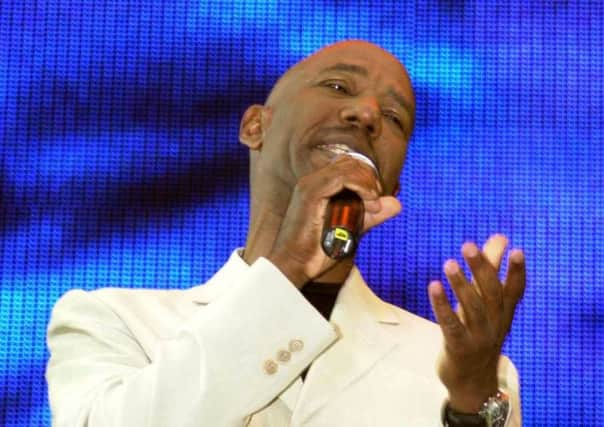Obituary: Errol Brown MBE, singer


Errol Brown MBE was a Jamaican-born British soul singer who achieved great popular success throughout the 1970s and 80s as leader of the soul band Hot Chocolate, earning hits – particularly in Britain – with a diverse range of songs including the symphonic hippie anthem Love is Life (1970), the gritty soul-funk groove Brother Louie (1973), the Commodores-style balladry of So You Win Again (1977), disco-flavoured stomp Every1’s a Winner (1978) and sleek, synthesised pop hit It Started With a Kiss (1982).
Despite the breadth and variety of the group’s work, however, undoubtedly their best-known and most enduring song remained the swaggering, disco-tinged four minute chat-up line You Sexy Thing, a hit in three different decades – upon its original release in 1975 (when it was beaten to number one in Britain only by Queen’s huge Bohemian Rhapsody), through a remixed version in 1987, and again in 1997 when it appeared on the soundtrack of the hit male stripper comedy The Full Monty.
Advertisement
Hide AdAdvertisement
Hide AdBorn Lester Errol Brown in Kingston, Jamaica, Brown was brought to live in the UK by his mother when he was 12 years old, having been raised by his auntie for five years previous while his mother settled in Britain and found work.
He recalled enjoying calypso music in Jamaica and rock music like the Beatles and the Rolling Stones after he arrived in the UK, which may have accounted for much of the diversity of his own sound.
In minimal contact with his father as a child, Brown was raised by his mother. A youth when she arrived in the UK looking for a better life, she saved enough to pay for him to go to private school, an experience which he has said forged his ambitions.
When she died prematurely at the age of 38, the 20-year-old Brown was distraught. His ambition was never to be a singer, although he had sung in the church choir, but it was when neighbours in West Hampstead reached out to the lonely and bereaved young man that he found his calling. One of these neighbours was a young musician of Brown’s own age named Tony Wilson, and together the pair would write songs based on Brown’s melodies.
Their break came when they decided to record some gimmicky reggae covers of popular hits and release them, with one of these tracks – a version of John Lennon’s Give Peace a Chance – being so radically reworked that they naively sent it off to the offices of Apple Records asking permission to put it out.
John Lennon heard it, approved, and released the song himself on Apple, with the pair’s group apparently named The Hot Chocolate Band because a secretary in the office was drinking a mug of the stuff at the time.
The cover version was not a success and the Apple project soon folded, but by now Brown and Wilson had a foothold. In late 1969 they were swiftly taken under the wing of super-producer Mickie Most, who recorded and released them on his own RAK label, earning them early hits including Love is Life and I Believe (in Love) (1971).
Even then displaying a chameleonic flair for capturing the spirit of the times, Brother Louie was a gritty ride through urban deprivation and Emma (1974) was a plaintive, mournful soul hymn set off by the expressive warmth of Brown’s vocal. He has said the memory of his mother was inspiration for the song.
Advertisement
Hide AdAdvertisement
Hide AdAt one point described as the UK’s answer to Isaac Hayes – his distinctive bald head and a voice which smoothly cruised between delicacy and power both contributed to such an image – Brown was as at home with his earlier urban soul style as he would later find himself with the glossy, disco-era productions which really made his name in the UK and increased his profile overseas. Although Hot Chocolate were strangely distinctive in that their regular hit singles were accompanied by albums which achieved minimal sales, his career had seen many highs by the time Brown left the group in 1985 to focus on family life.
Over the next two decades, he would sporadically return for popular tours of his old hits, although his solo recording career never hit the same heights.
A Conservative supporter who performed John Lennon’s Imagine for Margaret Thatcher at a party conference in the 1980s and before the wedding of Prince Charles and Princess Diana, Brown was awarded an MBE in 2003 and an Ivor Novello award for his contribution to music the following year.
Having retired from music altogether in 2009, he died at home in the Bahamas after a period suffering from liver cancer. He is survived by his wife of 30 years Ginette and daughters Colette and Leonie.